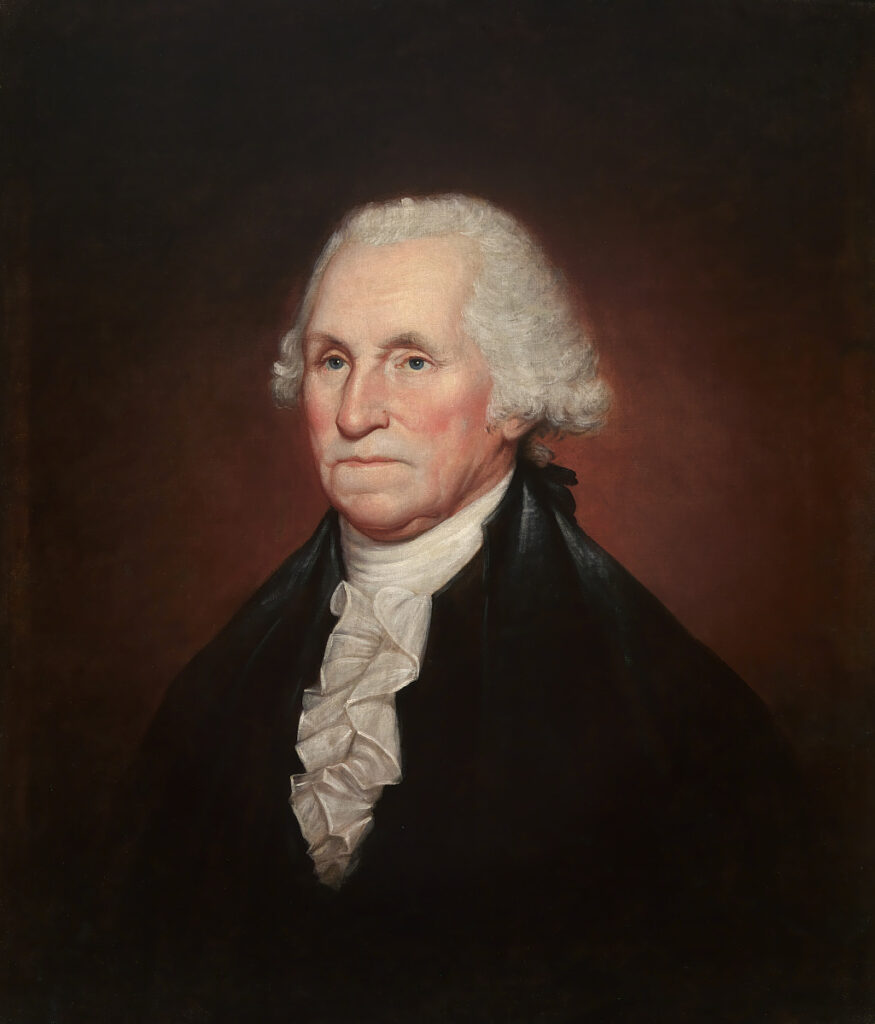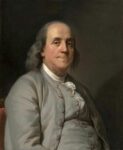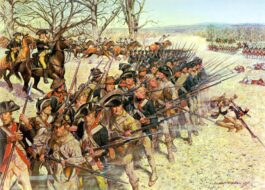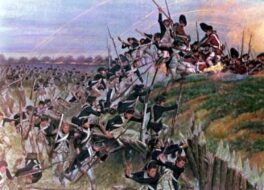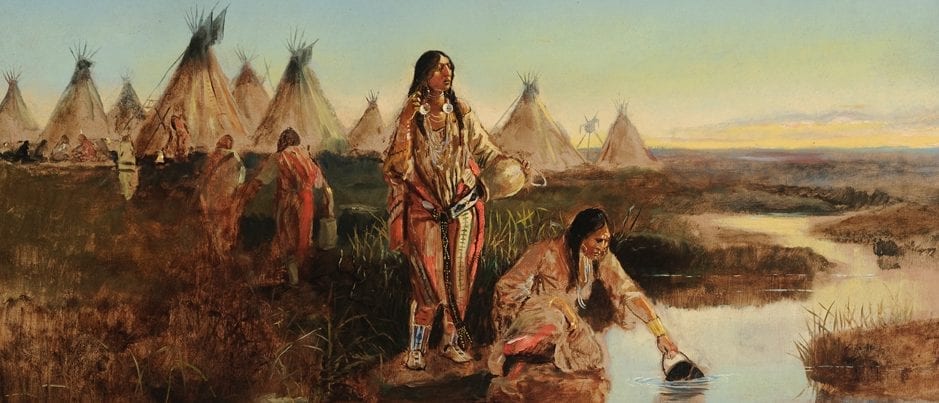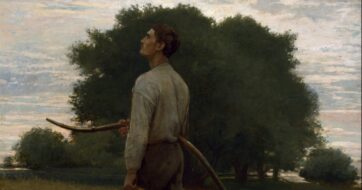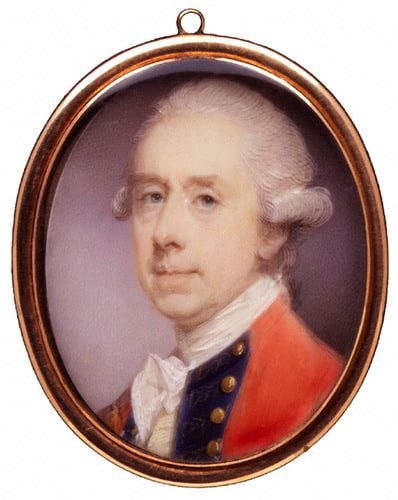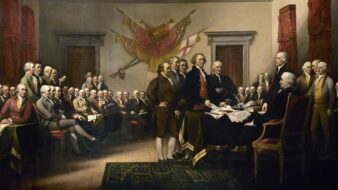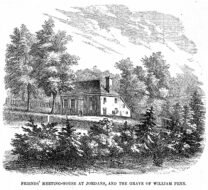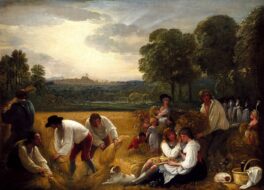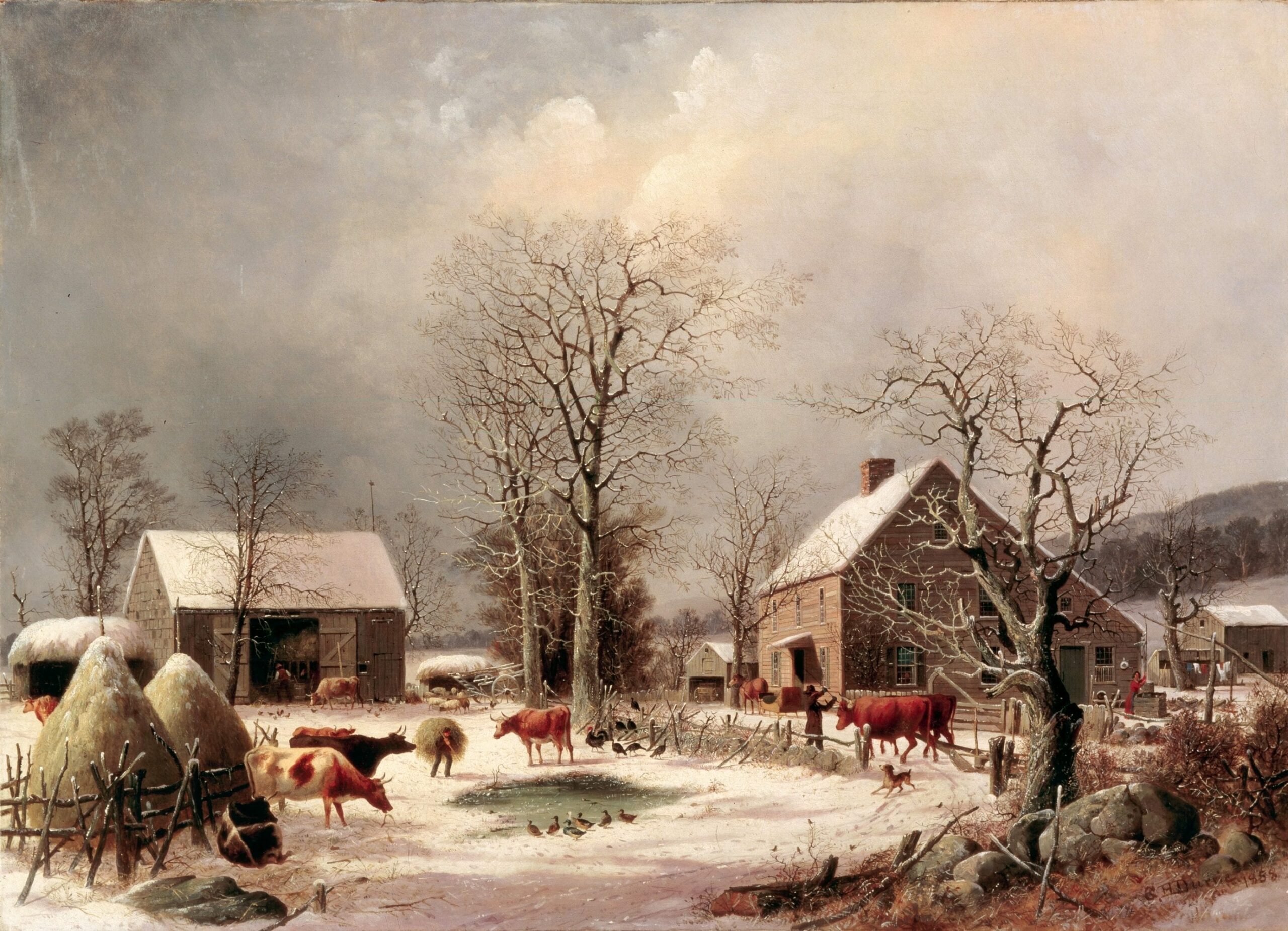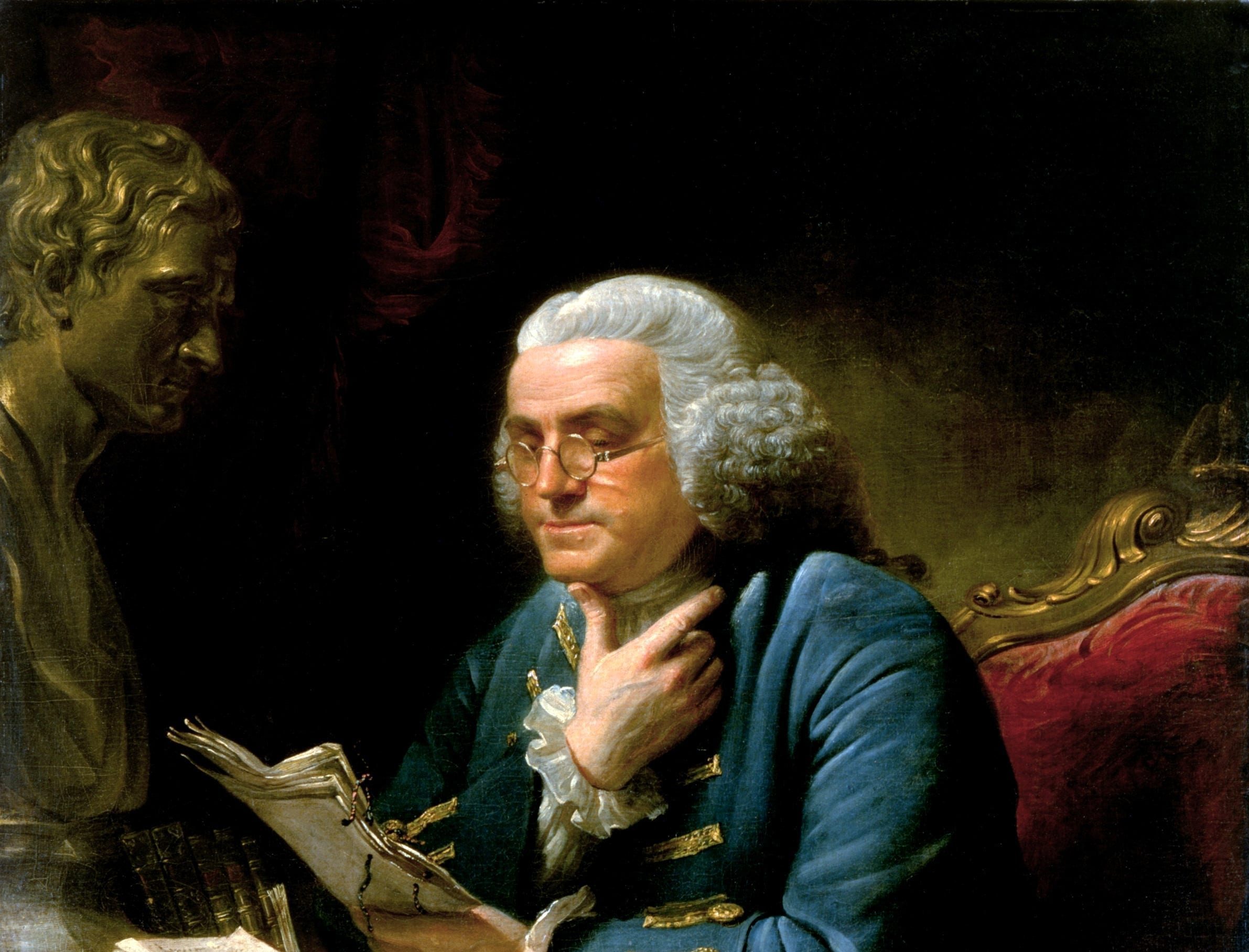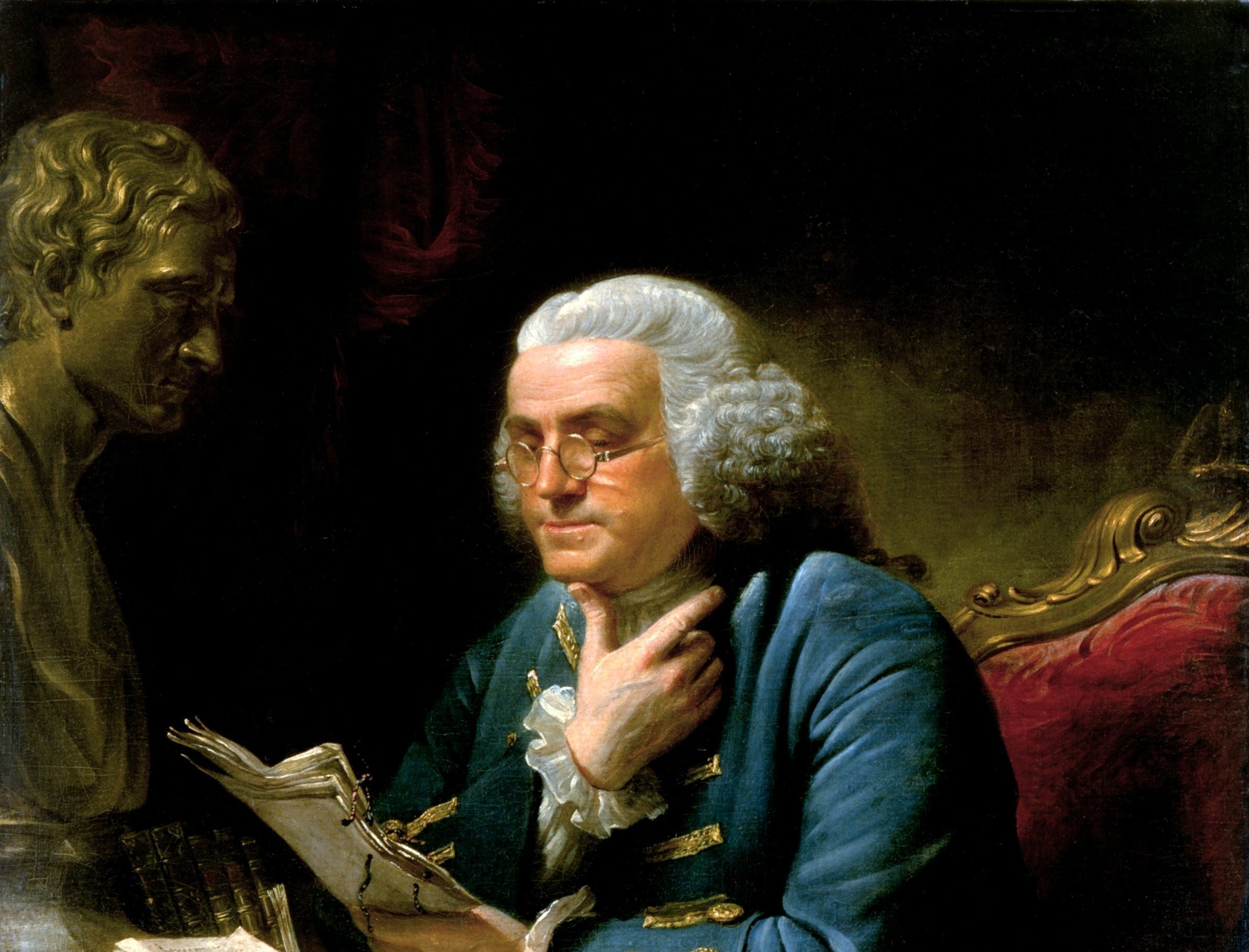“From George Washington to Lund Washington, 10–17 December 1776,” Founders Online, National Archives, https://teachingamericanhistory.org/exyj.
I have since [his letter of Dec. 10] moved up to this place, to be more convenient to our great and extensive defences of this river. Hitherto, by our destruction of the boats, and vigilance in watching the fords of the river above the falls (which are now rather high), we have prevented them from crossing; but how long we shall be able to do it God only knows, as they are still hovering about the river. And if every thing else fails, will wait till the 1st of January, when there will be no other men to oppose them but militia, none of which but those from Philadelphia . . . are yet come (although I am told some are expected from the back countries). When I say none but militia, I am to except the Virginia regiments and the shattered remains of Smallwood's, which, by fatigue, want of clothes, etc., are reduced to nothing -Weedon's, which was the strongest, not having more than between one hundred and thirty to one hundred and forty men fit for duty, the rest being in the hospitals.
The unhappy policy of short enlistments and a dependence upon militia will, I fear, prove the downfall of our cause, though early pointed out with an almost prophetic spirit! Our cause has also received a severe blow in the captivity of Gen. Lee. Unhappy man! Taken by his own imprudence, going three or four miles from his own camp, and within twenty of the enemy, notice of which by a rascally Tory was given a party of light horse, seized him in the morning after travelling all night, and carried him off in high triumph and with every mark of indignity, not even suffering him to get his hat or surtout coat. The troops that were under his command are not yet come up with us, though they, I think, may be expected to-morrow. A large part of the Jerseys have given every proof of disaffection that they can do, and this part of Pennsylvania are equally inimical. In short, your imagination can scarce extend to a situation more distressing than mine. Our only dependence now is upon the speedy enlistment of a new army. If this fails, I think the game will be pretty well up, as, from disaffection and want of spirit and fortitude, the inhabitants, instead of resistance, are offering sub-mission and taking protection from Gen. Howe in Jersey.


